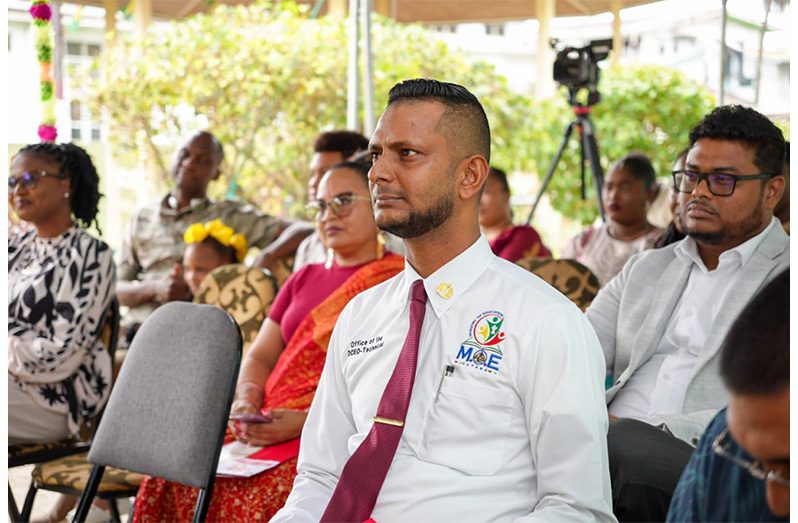–Dr. Tularam says; points to alignment of skills training with labour market demands
PROGRESS in Technical and Vocational Education and Training (TVET) has translated into benefits for Guyana’s tourism and hospitality sector, Deputy Chief Education Officer- Technical (DCEO-T), Dr. Ritesh Tularam has said.
In order for tourism and hospitality to thrive, persons must be skilled, and efficient, and gaps must be addressed to further improve the quality of service that is being delivered.
This is where TVET comes in, aiding in the development of practical skillsets that are critically needed in this sector.
Last week, during the launch of a new recipe book, titled, “A Taste of Guyanese Curries” by the Carnegie School of Home Economics in collaboration with the Ministry of Education, Dr. Tularam alluded to this fact.
A premier TVET institution, the Carnegie School of Home Economics trains thousands of Guyanese in a number of skilled areas such as commercial food preparation, housekeeping, garment making, interior design, household management, general cosmetology, childcare management level one and two, and catering and hospitality, just to name a few.
The DCEO-Technical, in his address, stated that the institution is training persons within Guyana for a purpose, meaning that after receiving a certificate from the CSHE, they can be gainfully employed, making contributions towards their respective areas.
“Our training must realign to what is happening, and, of course through these partnerships, (with) the Guyana Tourism Authority, and all the other key agencies that we are working with and collaborating with, this is where Carnegie will be able to realign and reposition and re-engineer its position in making its training meaningful, purposeful and impactful,” he said.
Dr. Tularam further said that at the hierarchical structure, the investments in this are significant and strategic.
He pointed to Region Six, East Berbice-Corentyne, where there is a state-of-the-art Hospitality and Tourism Training Institute (HTTI), being built, with expectations for an early 2026 opening.
This facility is set to provide training for students in Region Six and other areas, who require a higher qualification.
“So, the intention is that everything that we are doing here strategically is an alignment with what is the ministry’s vision- that is the overarching vision- it has that rippling effect on that training institution,” Dr. Tularam said.
He added: “It means, therefore, that persons who have successfully completed their training at this institution in the various programmes that we are offering, they can now transition smoothly to the HTTI Tourism and Training Institution, the Hospitality Tourism and Training Institution, and they can continue with their higher education.”
These persons will be able to complete an Associate Degree in Hospitality and Tourism, and complete programmes within the hospitality and tourism sector.
This means that there must be synergy, an alignment with what is being done at Carnegie and what will be done at the HTTI, he remarked.
Underscoring that the CSHE must see itself as more than a training hub/ institution and more as a research institution, the DCEO-T urged that as they set their goals for 2026, [the institution must] start thinking about how they could transform what is being done.
“[We must look at] how do we add other aspects to truly make Carnegie what it is supposed to be, and not simply a hub for training students in this new industry.
“How do we look out there and see that the Hilton was commissioned a couple days ago; How do we engage with the Hilton, given the state-of-the-artness of their facilities, the human resource capacity of that institution.
“How do we formulate and draft an MOU that we can have our trainees to be a part of their training programme, how do we reciprocate that by having their trained personnel at that institution come to Carnegie in a structured fashion and provide a kind of newness, technology methodology, practices, principles whatever it is so that we’re all in alignment with what are the emerging trends,” Dr. Tularam said.



.jpg)








